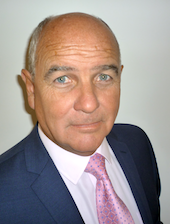Cloud services provider EveryCloud and connectivity and voice specialist Vapour Media have merged to offer a white label cloud and connectivity proposition to the channel.
The combined businesses will operate under the Vapour Media brand.
Both organisations serve SMEs via the reseller channel.
With offices at Manchester-based Teledata, EveryCloud provides cloud services through a white label proposition, focusing on hosted servers, back-up and storage.
Brighouse-based Vapour provides connectivity and access to its own private MPLS network and voice services via its next generation VoIP platform.
Both companies have experienced growth and built respective infrastructures following investment, and are now focusing on growth via the indirect reseller channel.
The enlarged organisation boasts six data centres as well as its own private network infrastructure, delivering white label solutions including cloud-based services such as backup and storage, network connectivity and next generation voice.
The business will have the ability to instantly enable resellers to become cloud and connectivity resellers, incorporating provisioning and billing.
Tim Mercer, Vapour Media, said: "In the business environment there is the opportunity for a connectivity-driven revolution that enables business growth and improvement through cloud services.
"Traditional IT companies, telcos and cloud start-ups are offering a bewildering array of solutions to embrace this. These worlds are colliding and SMEs are stuck in the middle.
"There is a place for a new breed of provider, marking a move away from telcos dabbling in computing or IT businesses dabbling in comms. There is a requirement for an integrated cloud provider that can credibly provide an all-in-one offering."
Steve Dempsey, EveryCloud, added: "Our customers who are taking back-up and data storage services are increasingly looking to upgrade their connectivity and they are also likely candidates for phone and voice services too.
"This merger with Vapour Media will allow us to provide truly integrated cloud services to the SME market in a unique way that will be appealing to both IT and comms resellers."

 Software provider Advanced Computer Software Group has appointed Gordon Wilson as CEO.
Software provider Advanced Computer Software Group has appointed Gordon Wilson as CEO.